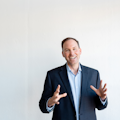6 ways dentists can invest in their profession through DDSO partnerships
After two decades as a continuing education provider in dentistry, I noticed a common and troubling theme—dentists investing their hard-earned money outside of their own profession. It’s true that dentistry is one of the most profitable businesses in the United States and that institutional money is pouring in at an unprecedented rate. It’s also true that when dentists invest back into dentistry, they receive a high return on investment.
So, why is it that many dentists today invest in so many different investment vehicles outside of dentistry, such as single-family homes, cryptocurrency, public companies, private stock, nondental companies, and mutual funds? I believe the answer is not related to ROI, but to lack of specialized knowledge in the variety of investments immediately available and directly related to the field of dentistry.
Here I will share six ways that dentists can achieve a very high ROI while investing directly and partnering in their own profession using a specialized set of knowledge collectively termed DDSO strategies. DDSO means dentist-owned dental service organization.
Dental equity harvesting
Most wealth transfers occur immediately after a recession. This investment strategy involves acquiring undervalued practices that suffered from the most recent pandemic-related recession. Acquiring the asset is only half of the equation. After acquisition, it’s time to add value through increased revenue, new-patient flow, and by allowing another dentist to receive ownership in the practice. The goal is to find value and add value. The idea is to purchase at wholesale pricing and to equity harvest at retail pricing once the practice has been turned around. Equity harvesting means taking and converting the practice value increase into cash. This is usually done through conventional bank financing. On the front end, these practices are usually acquired through a combination of a private lending partnership and seller financing.
The mentorship joint venture
This strategy involves a successful practice owner acquiring a satellite practice with a new dentist who has never owned a practice, and therefore likely has high dental school debt. The mentor dentist provides the opportunity, experience, funding, and other resources while the new dentist brings the desire to learn, be successful, and own a practice. After owning multiple practices and employing 28 different associates, I realized that a dentist will never get ahead by being an employee or associate of somebody else.
I started going into dental schools and providing lunch and learns that discussed practice ownership right out of school. I completed 11 mentorship JVs in 2007-2008 with a very high ROI for both the mentee dentist and me. A mentorship JV is where you partner with a young doctor 50/50 and buy out a selling doctor. The new dentists do not use any of their own capital to grow their equity and wealth in this type of arrangement. They use dental human capital, which is more valuable than money. This is one of the best strategies for high investment returns while at the same time combating corporate practice expansion and fostering private practice growth. A dentist who is using this strategy noted at a recent “DDSO Live” event, “I am now on my second mentorship JV and I strongly feel that this is one of the best ways to invest in dentistry. It is also one of the most fun! If every dentist in the US did just one of these deals, private practice dentistry would displace corporate dentistry in a matter of years.”
Value-added health-care real estate
It is true that much of the world’s wealth is gained in real estate. The most profitable form is income-producing real estate. The most profitable form of income-producing real estate is health-care real estate. Retail, industrial. and office spaces have suffered because of Amazon and the post-pandemic world, while health-care markets are projected to grow steadily during the next decade due to an aging and wealthy baby boom generation. What w consider to be an unfair advantage for dentists is that they can partner with like-minded dentists and convert undervalued, high street exposure retail real estate into high-value health-care real estate.
Dental private lending
Have you ever wondered why the banks have the tallest skyscrapers in many major cities? It’s because of the rule of 72. Seventy-two divided by your interest rate of return equals the number of years it takes for your money to double. As a private lender in dentistry, which is one of the most profitable professions in America, your money doubles quickly and safely as you, in essence, become a private bank. Most dentists prefer funding within 24 to 48 hours as opposed to a lengthy, red-tape-filled, three-plus month process with a standard professional practice lender. It is dentists partnering with and funding other dentists.
This is another great tactic to not only increase your financial abundance and clinical/lifestyle balance, but to fight corporate expansion and increase private practice strength. At a recent “DDSO Live” event, a dentist said this regarding private lending through his self-directed IRA: “Private lending in dentistry has allowed me to have much higher returns than on anything else during my 30 years of practice. I wish I had known about this years ago. My retirement account would have thanked me. This will be one of my key financial strategies as a dentist in the coming years.”
Build your own private equity company
A private equity company is an organization that makes both a debt and equity investment into a particular project. I have operated my own funds and investments as a private equity company for many years. To get started, you do not need to form a limited liability company (LLC), you simply need to use funds that you have available and consummate a private lending and dental equity transaction. When a dentist earns a private lending interest rate return on their money, plus an equity return on the project, there is a compounding effect on the investment that can only be achieved by eliminating the middleman. In essence, you become the wholesale purchaser of assets. You eliminate the hedge fund manager, money managers, financial planners, administrators, and a myriad of other financial people who drain your cash. Partnering with other dentists at the highest level allows you to maximize your profits and minimize your taxes.
Master DDSO
A master DDSO is a large partnership of private practices with a unified and “invisible” back-office management component. The sum of the parts is valued at 10 to 16 times earnings before interest, taxes, depreciation, and amortization (EBITDA) as opposed to four to seven times EBITDA. This allows for a maximized valuation coupled with more flexibility and less contractual obligations. Many of you know someone who has sold to a DSO, whether private equity or corporate. Many of you have been a clinician in a DSO. Some of you may have to make a choice someday between big money and private practice. In fact, I was offered $100 million on three separate occasions from institutional investors to form a $1 billion-anticipated valuation national DSO. I rejected the opportunities because of my deep roots in private practice dentistry. A master DDSO structure has all the autonomy of private practice with the wealth building and financial fortitude that is commonly seen with corporate DSO structures.
As you can see, there’s no need to look outside of dentistry for the highest returns on your monetary capital or dental human capital. As you have also learned, it is not necessary to use your own cash to create these high returns; you can use dental human capital instead. Knowledge in these six subject areas is all you need to have a financially abundant future in dentistry, and the clinical/lifestyle freedom that you desire from your chosen profession. Dig deeper into these subjects and reap the rewards from the greatest profession of our time—dentistry.
BRADY FRANK, DDS, has advised some of the largest private practices and DSOs in the nation. Dr. Frank has a unique perspective on the business of dentistry. He educates and equips large private practices and private practice groups (DDSOs) in relation to expansion, acquisitions, ownership strategy, and health-care real estate investment strategy. Explore events at ddsolive.com or go to transitiontimebook.com for a complimentary copy.
About the Author

Brady Frank, DDS
Brady Frank, DDS, is a third-generation dentist turned entrepreneur, inventor, author, and thought-leader with a passion for teaching others the hard-won lessons he has learned about successfully creating and selling a business. Dr. Frank has expertise on multi-doctor and multi-location private group practices, dental transitions, DSO and DDSO expansion and growth strategies, and healthcare real estate investment, and is most passionate about mentoring others on these topics.
